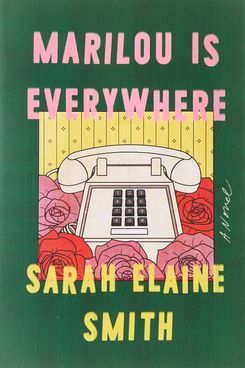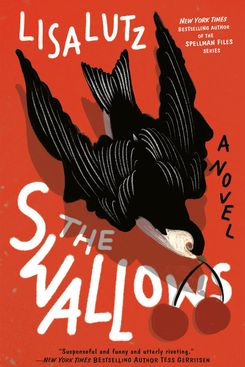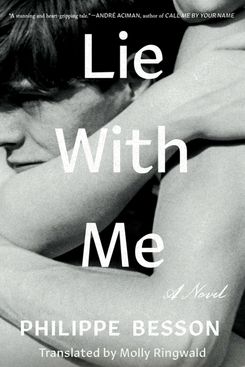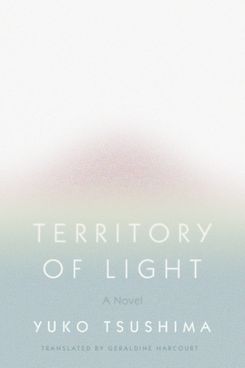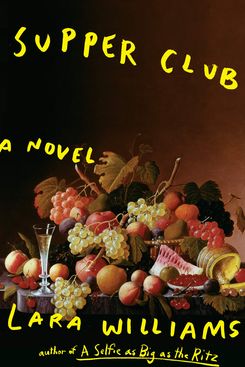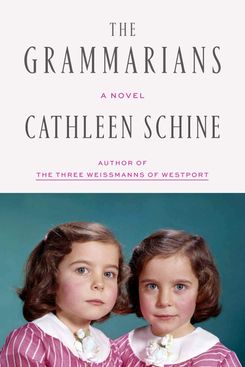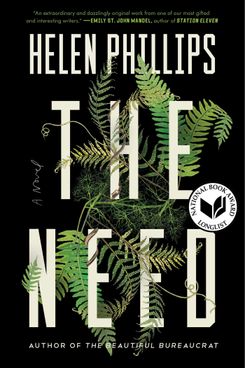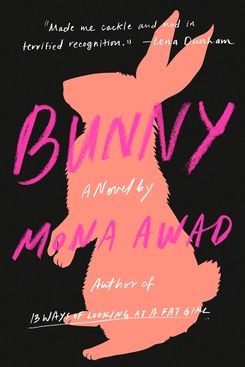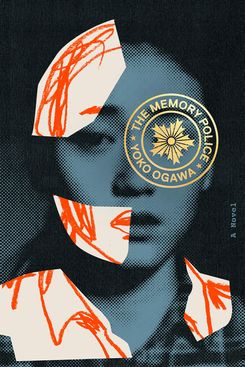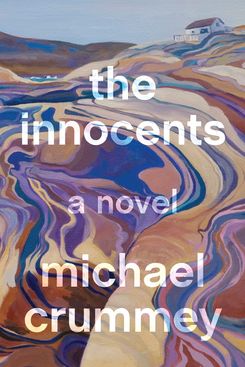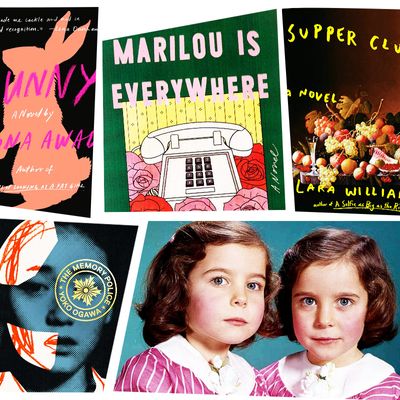
In this year of big-fanfare sequels (Andre Aciman’s Find Me; Elizabeth Strout’s Olive, Again; Margaret Atwood’s The Testaments), the “best of” lists are crammed full of the usual suspects, books you already know were great (or at least well-promoted). Meanwhile, more than a handful of moving, wise, and important novels have slipped through the cracks. Here are the ones that didn’t launch a thousand think pieces or pop up in Reese’s perky club, never mind the best-seller lists — though they damn well should have.
10. Marilou is Everywhere, Sarah Elaine Smith
I hate when critics call books “gritty” — with its implication of fancy readers slumming it — but Marilou Is Everywhere is so unafraid of clutter and junk and dirt-ringed collars that there’s no better word for it. Fourteen-year-old Cindy lives in a beat-up trailer in rural Pennsylvania with her two older brothers and an occasional mother. When Jude, another teenage girl (who is her brother’s former girlfriend), goes missing, Cindy inhabits Jude’s life — moving in with her alcoholic, mentally depleted mother, Bernadette, and posing as the disappeared daughter. Can a love-starved teenage girl be held accountable for such a nefarious con? Is it really a con if there is no apparent victim?
9. The Swallows, Lisa Lutz
I’ll never say no to a classic story of revenge, especially when the injured party is a trio of crackling-smart teenage girls determined to bring down a brat pack of licentious, wormy little dudes. Lutz’s extraordinarily fun and blood pressure-raising novel is set in 2009 — pre-Me Too but post-“The Facebook.” The boys run an encrypted website called ‘The Darkroom,’ in which they rate their sexual encounters; the girls are on a mission to shut it down by any means necessary. The Swallows goes surprising places (axes are employed) and isn’t afraid to let everyone roll around in the muck — though some characters come out smelling sweeter than others.
8. Lie With Me, Phillipe Besson
The sequel to Call Me By Your Name was not, alas, just 250 more pages of Elio smiling shyly and Oliver sliding into his bed. But if you’re desperately in the mood (read: horny) for another love story of that caliber, Besson’s considerably darker portrait will offer you plenty of action between the sheets, along with a Rachel Cusk-ian dose of autofiction. We never quite learn whether this tale of a secret schoolboy romance is true. Besson toys with us, casting a writer as his unnamed protagonist, who may or may not also be Besson, and twisting us up in all kinds of knots — literary, existential, and libidinal.
7. Territory of Light, Yuko Tsushima
This one’s a bit of a cheat: Initially published in Japan in the late seventies, serialized monthly as it traced its protagonist’s first full year as a single mother struggling to understand her new life. It took 30 years to make its way to America, but Territory deserves a spot here. It’s astounding how well the novel stands the test of time: Its core concerns — about the expansion of time when one is alone with a toddler, the specter of death that hovers over parenthood, and the persistent socioeconomic isolation of unwed motherhood — feel just as urgent today.
6. Supper Club, Lara Williams
Pour a vessel of burgundy over your face. Reach into a watermelon and scoop the flesh into your mouth. Lick the bacon grease from the bowl. Lara Williams’s Supper Club, a riotous still life-turned-food fight, follows Roberta and Stevie, a pair of newfound best friends who start the titular club in an effort to break the stranglehold of food on their psyches. What starts as a feminist Bacchanalia eventually threatens to consume Roberta herself. Williams’s writing is decadent and lush, and the narrative avoids any pat resolutions for women frustrated by the way our bodies have been commodified by chocolate pushers and fitness gurus alike.
5. The Grammarians, Cathleen Schine
Identical twins? Freaky. Identical twin grammatical whizzes who communicate via a private language but eventually go to war over their divergent theories? A freaky good premise, if you have the linguistic chops to pull it off, and Cathleen Schine does. Laurel and Daphne revolve around each other like dueling twin planets. Daphne grows into “The People’s Pedant,” an exacting columnist and minor New York celeb. Laurel, a kindergarten teacher and mother, eventually turns to poetry, publicly chastising her sister’s prescriptivism. How far do the products of one split embryo have to run from one another to stake their independence? Schine’s own language is a fusion of the sisters — lavish but precise, and awe-inducing.
4. The Need, Helen Phillips
Motherhood is scary as fuck. Will I love my baby? Will it love me? Will I kill it? Will someone else kill it? Add in the entirely unsettling notion that motherhood transforms women from individuals into totems, and it’s surprising that there aren’t even more horror stories about it. The Need couples the banality of parenting with a wildly surrealistic horror plot. When Molly’s husband is out of town, a doppelgänger shows up and insists on sharing her life, forcing Molly to manage both solo parenting and a very familiar monster’s greed. The result is a thriller about, of all things, work-life balance. Read it with the doors locked and the children’s bedroom monitor on.
3. Bunny, Mona Awad
I’d have done an MFA if I’d known it could be this wild. “Bunny” is the nickname of a clique of curling iron-wielding, Valley-upspeaking, unhinged women in Samantha Mackey’s writing program. They are each Bunny, they are all Bunny; Bunny is how they telegraph their softness, their femininity, their stroking devotion. Samantha detests them. But when the Bunnies invite her to one of their “Smut Salons” — complete with treacly cocktails, men of Homeric good looks and Homer Simpsonic intelligence, and a few pagan rituals that veer straight off a cliff into gory science fiction — Samantha is sucked in to their little cult, a victim and a perpetrator of their performative womanhood. Awad writes with a razor blade.
2. The Memory Police, Yoko Ogawa
Ogawa’s tale of a writer on a Japanese island that has fallen under the sway of a mystical, fascist police state is one of my favorite novels of the decade, never mind the year. It’s a perfect correction to the overwrought politico-apocalyptic fiction so fashionable in These Times. As objects disappear from the island, they disappear from memory, too, and humanity teeters on the brink of a blanket amnesia. The Memory Police touches on nearly every concern a despot-led 21st-century-superpower like ours might worry over, but it isn’t — thank God — “a commentary.” Instead, it clarifies all the things our wired society muddles, especially, and most profoundly, the saving grace of the human touch.
1. The Innocents, Michael Crummey
Evered and Ada are 11 and 9 when their baby sister, mother, and father die in rapid succession, leaving them entirely alone on the deserted shore of Newfoundland in the mid-eighteenth century. The siblings create a complete society of two, with their own language, traditions, and mystic connection to the dead. Imagine Into the Wild with prepubescents, told in the voice of a William Blake acolyte as verbally inventive as Tolkien. Crummey wrote the novel after reading about a clergyman who encountered a young pregnant girl living on that same coast … with only her brother for company. The Innocents is a survivor narrative and a psychological thriller, a chilling study in isolation.
*This article appears in the December 23, 2019, issue of New York Magazine. Subscribe Now!


